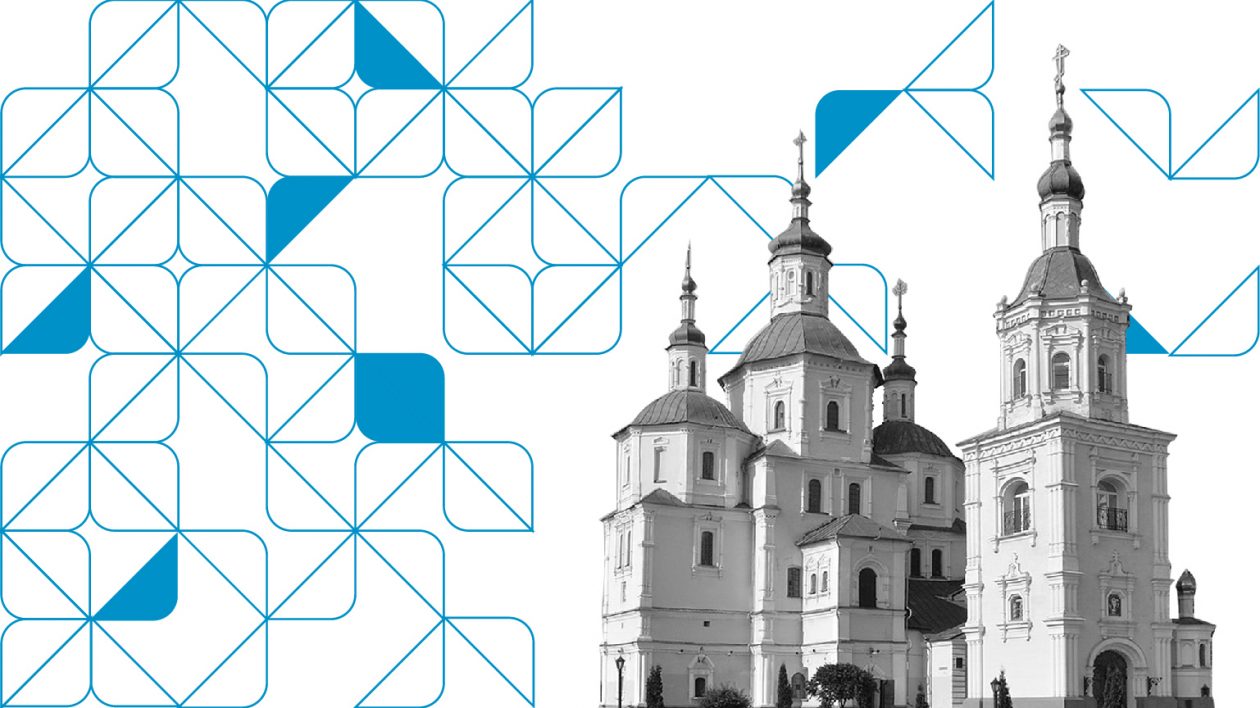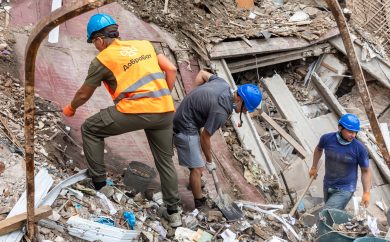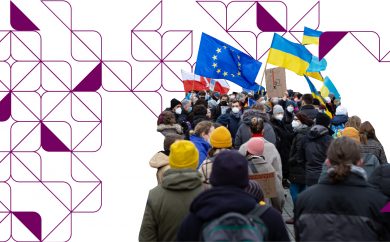The Civic Engagement Poll is a survey conducted by the USAID/ENGAGE activity to gauge citizen awareness of and engagement in civil society activities, participation in and perception of reform processes in Ukraine. In 2019 for the first time, USAID/ENGAGE extended it to the four target oblasts – Kharkiv, Zaporizhzhia, Sumy, and Kherson. This recent wave of the poll was held in winter 2021 and is the second time when USAID/ENGAGE draws up regional data. In this wave, in addition to the questions regarding awareness of and engagement in civic activities, we asked Sumy residents about their values and beliefs. Comparing these data with national results allows to better understand peculiarities of the regions and whether its citizens perceive civil society activities, reform processes and values differently from the rest of Ukrainians.
In Sumy, the poll revealed that awareness and involvement of residents in lives of their communities is very similar to the data we received during the national survey.
Sumy residents are well-aware of the forms of public participation. Participation in peaceful assemblies for a specific cause (70%), reporting on infrastructure issues (66%) and participation in public hearings (66%) are on top of the list. The national indicators are 75%, 69% and 57%, respectively.
Actual participation in these activities is low. Only 7% indicated joining a peaceful assembly, 7% were engaged in the creation of a housing, street or a block committee, while 6% participated in public hearings. At the national level, those indicators are 7%, 8%, and 5% respectively.
The involvement of Sumy residents in public initiatives reflects the findings of our national poll. For instance, both national and Sumy data mention the same percentage of respondents (33%) who reported attending community meetings and other public events. For most Sumy respondents, the main obstacles to participating in the life of their community are lack of time (33%) and interest (33%).
On the other side, the participation of Sumy residents in the activities of CSOs is higher than the national findings. 26% of respondents claimed that they participated in CSO activities, compared to 17% of those who did it at the national level. As with the case of the involvement in public initiatives, the reason of low engagement is lack of time (36%) or interest (37%).
Among main activities to self-organize without top-down direction, respondents name revitalizing of a home territory (32%) or a local park (16%) or improving the quality of utility services (16%).
Generally, Sumy residents believe that the state, the region, and their families are facing similar problems. Poverty is on top of the list among the most painful issues for a state (64%), region (70%), and for their families (66%). Next come unemployment (43%, 45%, 48%, respectively); and corruption (29%, 31%, 31%, respectively).
Just as in the national poll data, half of the respondents (49%) claim that they have not yet felt any consequences of the reforms. Almost a third (28%) say they have experienced both positive and negative effects, 20% have experienced only negative consequences, and only 1% of Sumy residents felt positive consequences of reforms.
At the same time, Sumy residents are more optimistic in their expectations to see the fruits of reforms any time soon than the national poll`s findings. Almost every third (27%) respondent expects the impact of reforms to occur within two-three years, compared to 17% at the national level. Another 26% believe that the results of reforms will occur in 4-5 years (16% at the national level), while 19% anticipate the effects of the reforms within one year (9% at the national level).
Respondents believe that the first signs of the irreversibility of reforms are the increase of their families’ income (68%), positive growth of the economy (46%), and strengthening of the hryvnia exchange rate (36%).
Most of the respondents (84%) believe that the state should be responsible for the well-being of everyone. At the same time, respondents recognize that their well-being (42%), health (37%), education (20%), education for children (31%) and employment (23%) also depend on their own efforts.
The survey revealed that Sumy residents are prone to put their personal well-being above rights and freedoms and mutual interests. For instance, half of the respondents (50%) agree that freedom can be sacrificed for greater security and well-being, while 52% claim that everyone should take care of their own interests without paying attention to others.
Following the findings of the national poll, Sumy residents are underwhelmed by the performance of authorities. 95% of respondents believe that people in power do not care about them, 92% are convinced that their opinion does not matter for authorities. Another 92% believe that people of power try to profit at their expense, while 82% claim that if a person has broken through to the higher echelons of power, they will use their status for enrichment. For 73% of respondents, there is no real political elite in Ukraine, while more than half (65%) are willing to give power to a strong leader who would bring order to the country.
Nevertheless, Sumy residents strive for rule of law and fair competition. More than half of the respondents (54%) believe that even in the most difficult situations it is necessary to follow the rules and laws. Unlike the national survey, the vast majority of Sumy respondents (58%) believe that hard work will lead to a better life, rather than luck and connections, while 61% are in favor of competition, which encourages people to work harder and implement new ideas.
According to Sumy residents, a good citizen always pays taxes (96%) and knows and understands the history of his country (95%). Slightly less – 94% – believe that a good citizen should stay at home when is sick, help those who have a worse standard of living, follow the news and events in the country and reports cases of corruption.
_______________
This survey summary was prepared by Pact as part of the USAID/ENGAGE activity, which is funded by the United States Agency for International Development (USAID). The contents of this survey summary are the sole responsibility of Pact and do not necessarily reflect the views of USAID or the United States Government.
About the CEP
The Civic Engagement Poll is conducted under the framework of the Enhance Non-Governmental Actors and Grassroots Engagement activity (USAID/ENGAGE), implemented by Pact. This report summarizes key takeaways from the poll, drawing from survey data collected in the winter of 2021.
The survey gauges citizen awareness of and engagement in civil society activities, and citizens’ participation in and perception of reform processes in Ukraine. During the most recent survey, respondents were also asked questions that measure their values, convictions, and attitudes to life.
The data collection for the USAID/ENGAGE Civic Engagement Poll was conducted by the research agency Info Sapiens, during December of 2020 and January of 2021. Field interviews were conducted with Ukrainian residents aged 18 years and older, face-to-face, in the respondents’ homes. The survey sampled 310 respondents and was designed in accordance with the distribution of the adult population of the Kharkiv oblast by age, sex, and settlement type according to the data of the State Statistics Service of Ukraine as of January 1, 2019. The margin of error of the sample is 5.6% (excluding the design effect).
Find more results from the Civic Engagement Poll:
Summer 2020 Winter 2020 Summer 2019 Winter 2019 Summer 2018 Winter 2018 Autumn 2017
You can download survey data and charts here.


